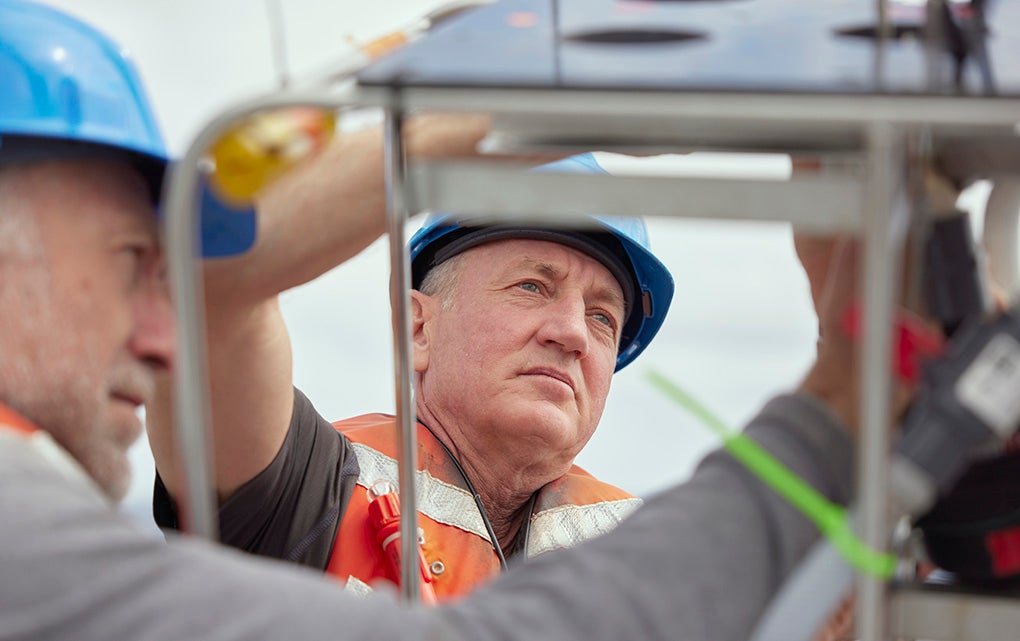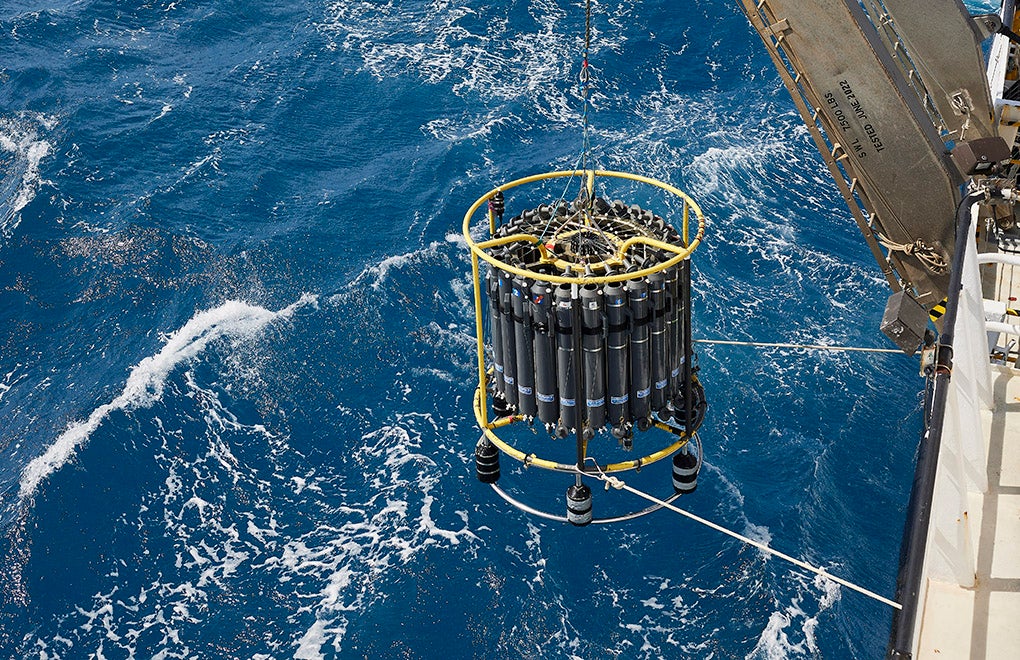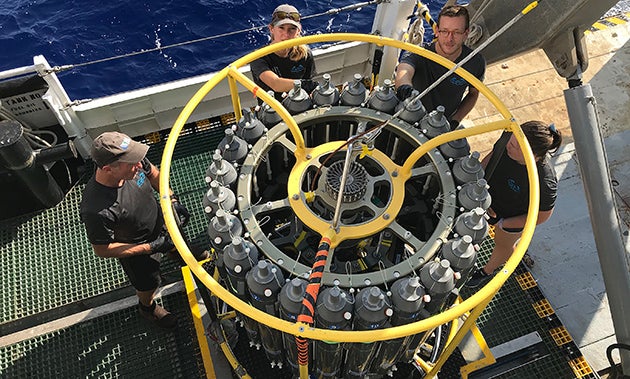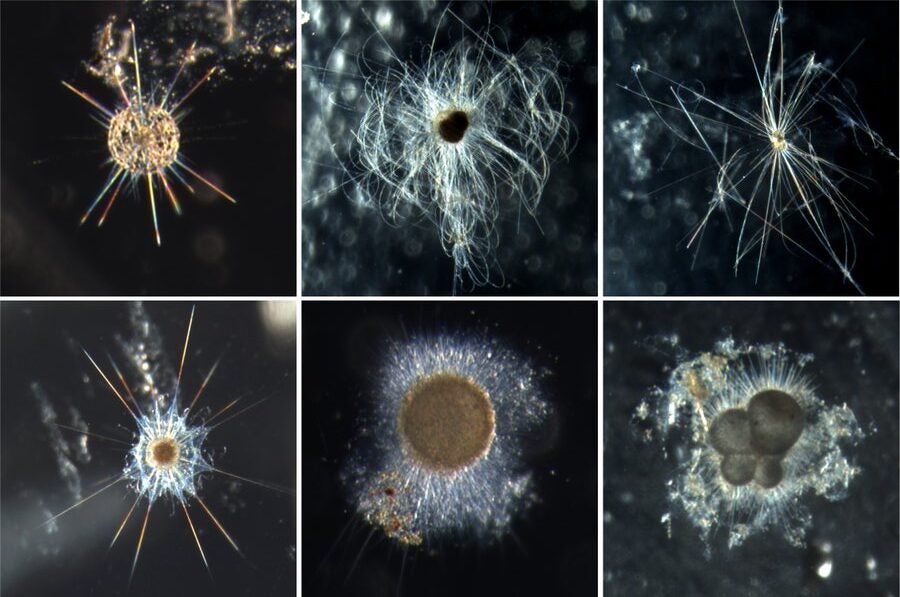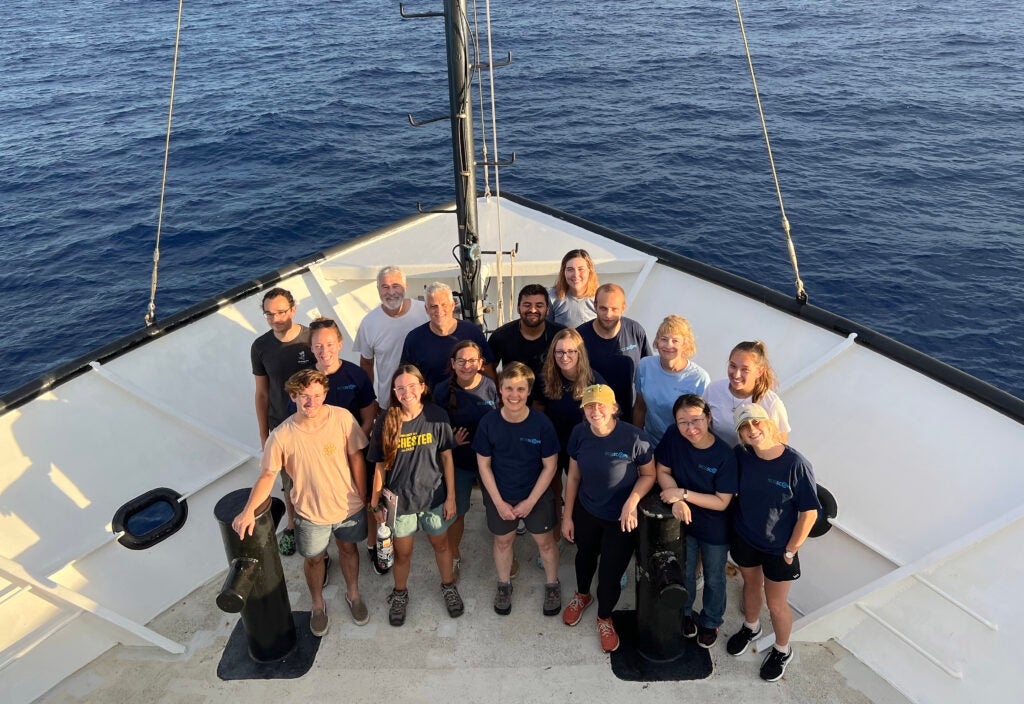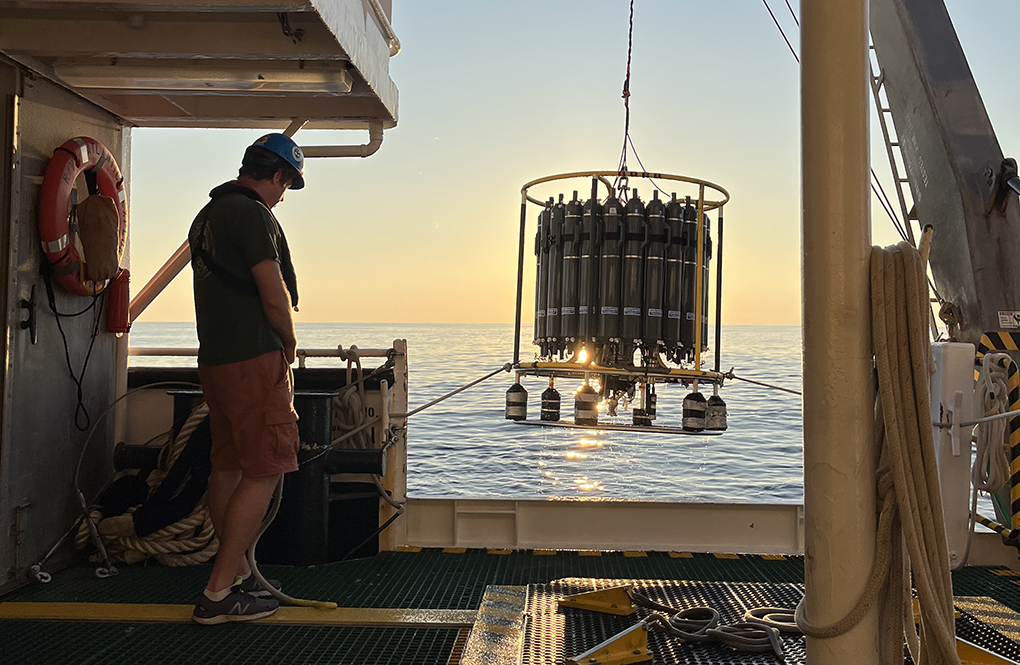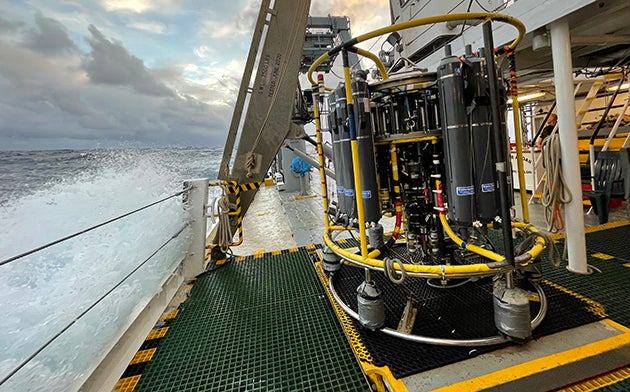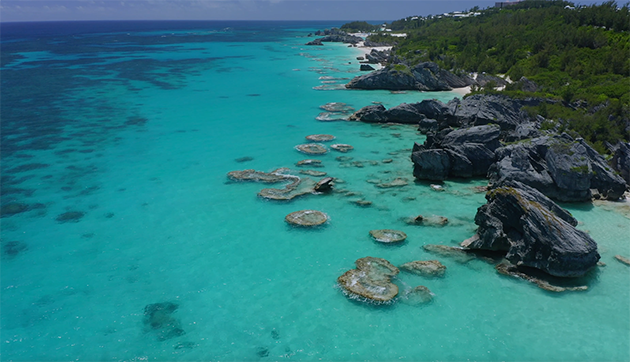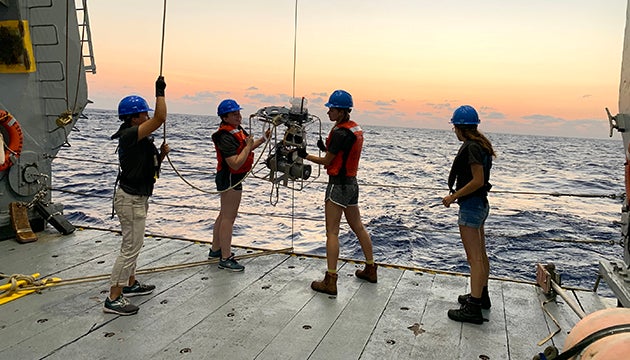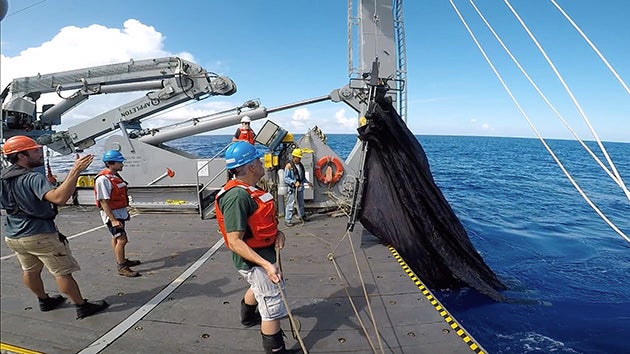BATS
Hydrostation ‘S’ Turns 70
Located southeast of Bermuda, Hydrostation ‘S’—a set of unmarked geographic coordinates (32 degrees 10 minutes North, 64 degrees 30 minutes West)—has yielded measurements of temperature, dissolved oxygen, salinity and other parameters every two weeks for seven decades.
Read MoreGround Truthing for NASA – ASU BIOS Selected to Validate Satellite Measurements of Plankton and Ocean Illuminance
ASU BIOS leads two of the research teams in NASA PACE validation process; measuring light entering and leaving the ocean surface and counting and characterizing plankton that make up the surface of the ocean over three annual cycles.
Read MoreAtlantic Ocean near Bermuda is warmer and more acidic than ever, 40 years of observation show
Oceans are constantly changing. These changes don’t only affect marine life but also have wide-reaching consequences for land dwellers. To document them, monitoring stations in the North Atlantic Ocean have been active for decades. Now, researchers have reported on the latest changes, showing that compared to 40 years ago, the ocean near the island of Bermuda is warmer, saltier, more acidic, and has lost oxygen. Long-term monitoring can provide information about existential challenges societies will face in the near future, the researchers said.
Read MoreNew Collaborative Rhizaria Research Project Underway
Researchers are seeking to fill the gaps of knowledge through a new three-year National Science Foundation-funded study about the role of Rhizaria in global geochemical cycling
Read MoreBIOS-SCOPE Scientists Reflect on the Project’s Success – and Look Ahead to its Future
On the eve of the program’s eleventh cruise – with 18 scientists and two marine science technicians on board, Currents spoke with BIOS-SCOPE Co-Principal Investigators Craig Carlson and Stephen Giovannoni and Investigator Rachel Parsons about the project’s past, present and future.
Read MoreStudy Highlights Importance of Mineral Iron in Ocean Ecosystems
Research reveals the importance of mineral forms of iron in regulating the cycling of this bio-essential nutrient in the ocean
Read MoreStudy: Microbial Life Helps Warming Ocean Adapt
New research reveals microbial ocean life that drives the carbon cycle in the Atlantic is adapting to warmer conditions. The findings give insight to how the ocean may adapt to warmer conditions and how to better forecast the future.
Read MoreBIOS Faculty Contribute to Government Report on the State of Bermuda’s Marine Waters
Document serves as a tool prior to the establishment of a marine protected area network in Bermuda
Read MoreShipboard Teamwork
Despite pandemic-related challenges, collaboration and can-do attitudes move science forward
Read MoreBIOS-SCOPE Funding Renewed
The interdisciplinary, multi-institutional research program will continue its study into the microbial ecology of the Sargasso Sea
Read More
